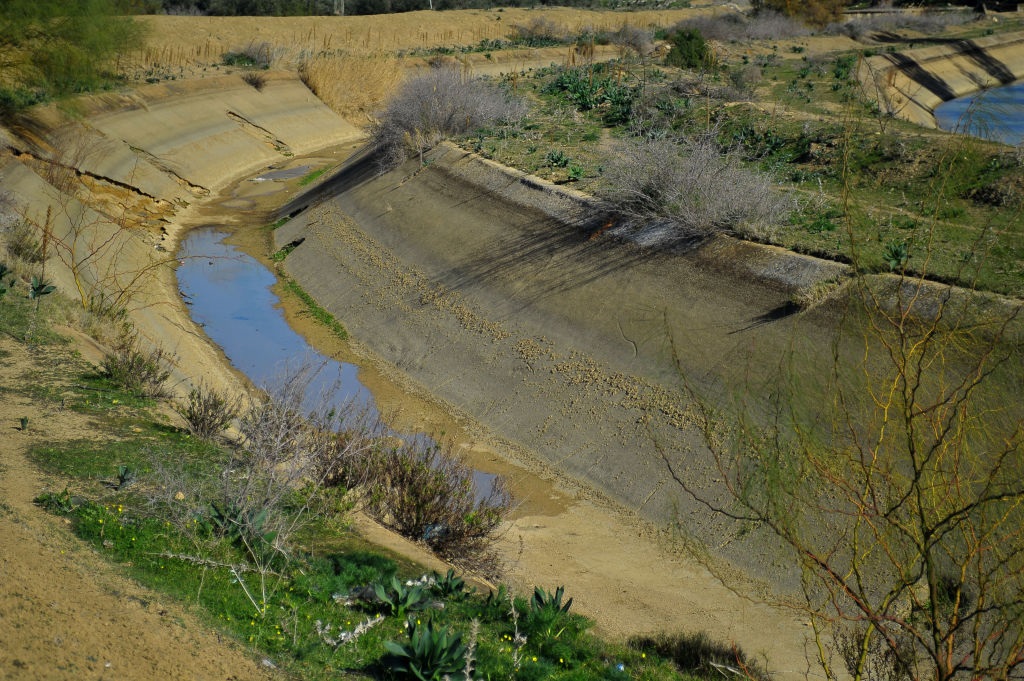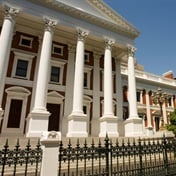
- A lack of rainfall has killed off Tunisia's crops, hitting its grain production levels.
- Tunisia's government has started rationing household supplies and banned water use for washing cars and irrigating fields.
- Tunisia is a net importer of grains, consuming three million tonnes of wheat and barley a year.
- For climate change news and analysis, go to News24 Climate Future.
A severe drought in North Africa has left Tunisian farmers bracing for a catastrophically poor harvest, imperilling food security in the cash-strapped country.
At a time when the global cereals market has been disrupted by the Ukraine war, Tunisia's domestic grain production has also withered under a lack of rainfall that has killed off crops.
Even before the roasting summer months, the soil is dry and dusty in the small Mediterranean country, whose water resources are steadily depleting as climate change intensifies.
"We've never seen a drought this bad," said wheat farmer Tahar Chaouachi, walking despondently through his field, 55 kilometres inland from the capital Tunis.
"It's been dry for the last four years but we expected some rain this season. Instead, it's become worse."
READ | Tunisia cuts off water supply at night amid severe drought
With some Tunisian water reservoirs almost completely dry, authorities imposed emergency measures last month, rationing household supplies and banning water use for washing cars - as well as for irrigating fields.
"Production is at zero," said Chaouachi, whose farmland lies in Beja province, a key grain production area since the days of the Roman Empire.
"The situation is unsustainable. We're losing everything we spend on seeds, fertiliser, pesticides and wages," he said. "There's no telling where things are heading."
The shortages come at a critical time for Tunisia, a net importer of wheat that has been hit hard by price hikes since Russia's invasion of Ukraine, both huge cereals exporters.
A painful cost-of-living crisis is compounding woes as the government is in negotiations with the International Monetary Fund for a bailout package.
'Seeds just died'
Tunisia - a country of 12 million where almost every meal involves bread, couscous or other cereals-based food - needs three million tonnes of wheat and barley a year.
Normally around two-thirds of this comes from overseas, but with the Ukraine war showing no signs of abating, that option looks expensive or even impossible.
The lack of rain has left reservoirs at historic lows of less than a third of capacity nationwide.
The biggest, located at Sidi Salem, a short drive from Chaouachi's farm, is filled to just 16% of capacity.
The area has seen less than 10 centimetres of rain since the autumn, pushing farmers either to plough withered crops back into the soil or harvest the stalks for animal feed.
READ | Historic drought adds to Argentina's economic woes
Chaouachi said that in December, "we sowed wheat here, but the seeds have just died because it's too dry".
Of the 600 hectares he planted, he was able to harvest from just 70.
Last year Chaouachi managed to grow 1 000 tonnes of cereals, but this year he believes he won't break even, having spent 600 000 dinars ($198 000) on the season's cereal crop.
"This year's harvest will be catastrophic," warned Anis Kharbeche, spokesman for the farming and fishing union UTAP, predicting a fall in output of two-thirds from last year.
"We'll only be able to harvest seeds for the next season, and the country will have to import all of its needs for domestic consumption" of two types of wheat and barley, Kharbeche said.
'Rethink farming'
UTAP has called on the government to urgently announce a drought and state of water "emergency".
It is also demanding a "clear strategy" to boost Tunisia's water reserves, calling for new desalination plants and quotas for at least some farm irrigation.
Kharbeche pointed out that farming makes up 12% of the economy, but "two or three percent of farmers are leaving the sector every year".
Tunisia's water woes are reflected across the Maghreb, already one of the world's most vulnerable regions to drought.
Only two of the past 10 years have seen what experts consider to be enough rainfall.
READ | How Vietnam is trying to stop rice warming the planet
In December, when farmers were sowing their spring cereal crops, temperatures were 3 degrees Celsius above the seasonal average.
Water and climate expert Raoudha Gafrej told AFP that climate change meant "it's absolutely vital that we rethink how farming works".
For example, she said, the country should stop using valuable water reserves to grow dates for export.
Tunisia devotes 80% of its water supply to irrigating just 8% of its farmland, leaving the remainder to rely on increasingly scarce rainfall.
"It doesn't make sense anymore," Gafrej said. "Drought means there will be no more water for rain-fed agriculture."




 Publications
Publications
 Partners
Partners












